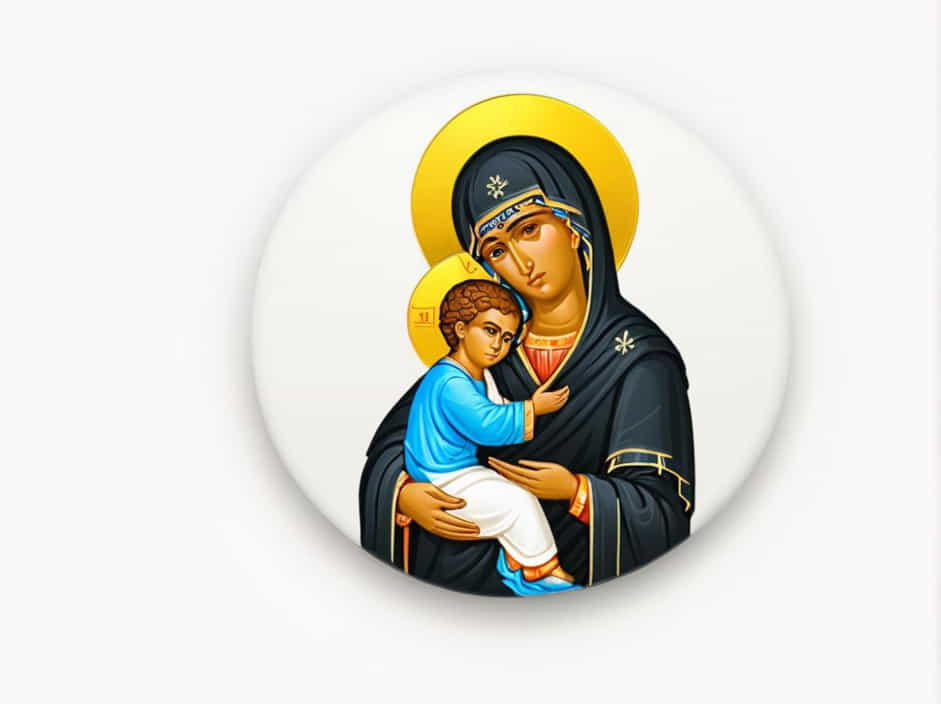The mother of Manasseh and Ephraim in the Bible is Asenath, a lesser-known but significant figure in the Old Testament. She was the wife of Joseph, the son of Jacob and Rachel, and the daughter of Potiphera, a priest of On (Heliopolis) in Egypt.
Asenath’s story is intertwined with Joseph’s rise to power in Egypt and the subsequent blessings of his two sons, Manasseh and Ephraim. Her marriage to Joseph symbolizes the integration of Israelite and Egyptian cultures, and her sons played a crucial role in the history of the twelve tribes of Israel.
Who Was Asenath?
An Egyptian Woman in the Bible
Asenath is mentioned in Genesis 41:45, where Pharaoh gives her to Joseph as a wife after he is appointed as the second-in-command over Egypt. The Bible describes her as the daughter of Potiphera, a priest of On. This suggests that she came from a prestigious family, as On (Heliopolis) was a major religious center in ancient Egypt.
Though little is mentioned about her character or beliefs, Asenath became part of God’s plan by becoming the mother of Manasseh and Ephraim, two key figures in Israelite history.
Marriage to Joseph
Joseph’s marriage to Asenath was a political and strategic move. After interpreting Pharaoh’s dreams and predicting seven years of famine, Joseph was elevated to a position of great power. To solidify his status, Pharaoh arranged his marriage to Asenath.
This marriage was unique because Joseph, a Hebrew, married an Egyptian woman. Despite the cultural and religious differences, their union led to the birth of two sons who would later be adopted by Jacob as his own and included in the tribes of Israel.
The Birth of Manasseh and Ephraim
Manasseh: The Firstborn
Manasseh was Joseph and Asenath’s firstborn son. His name means “causing to forget” because Joseph said, “God has made me forget all my hardship and all my father’s house” (Genesis 41:51). This reflects Joseph’s journey from slavery and imprisonment to prosperity in Egypt.
Ephraim: The Younger Son
Ephraim was the second son, and his name means “fruitfulness”, as Joseph declared, “God has made me fruitful in the land of my affliction” (Genesis 41:52). His name symbolized Joseph’s success despite his early suffering.
Both sons were raised in Egypt, but their destinies were shaped by their Israelite heritage when Jacob, their grandfather, gave them a special blessing.
Jacob’s Blessing: Ephraim Over Manasseh
The Unexpected Reversal
In Genesis 48, as Jacob neared death, he called Joseph to bless his two sons. Traditionally, the firstborn received the greater blessing, but Jacob crossed his hands, placing his right hand on Ephraim, the younger son, and his left hand on Manasseh.
Joseph tried to correct his father, but Jacob insisted, saying that while Manasseh would be great, Ephraim would be greater and his descendants would become a multitude of nations (Genesis 48:19).
Significance of the Blessing
This act of reversing the birthright was a common biblical theme, seen earlier with Jacob and Esau. Jacob’s blessing positioned Ephraim as the more dominant tribe in Israel’s history. The tribe of Ephraim became one of the most powerful among the northern tribes, while Manasseh also held significant influence.
The Legacy of Manasseh and Ephraim
Manasseh’s Role in Israel
The tribe of Manasseh was unique because it was divided into two territories-one half settled east of the Jordan River, and the other half settled west of the Jordan. This made Manasseh one of the largest and most influential tribes in Israel’s history.
Manasseh’s descendants included warriors and leaders who played key roles in battles and the governance of Israel.
Ephraim’s Influence
The tribe of Ephraim became dominant in the northern kingdom of Israel. In many parts of the Old Testament, Ephraim’s name is used to represent the entire northern kingdom. Leaders like Joshua, who led the Israelites into the Promised Land, came from the tribe of Ephraim.
The strength and leadership of Ephraim fulfilled Jacob’s prophetic blessing, demonstrating how God’s plan unfolded over generations.
What Can We Learn from Asenath’s Story?
1. God Works Through Unexpected People
Asenath was an Egyptian woman who became the mother of two foundational tribes of Israel. Her story shows that God’s plan includes people from different backgrounds, and He can use anyone to fulfill His divine purpose.
2. God’s Blessings Are Sovereign
Jacob’s unexpected blessing of Ephraim over Manasseh teaches that God’s ways are higher than human traditions. Sometimes, God chooses people in ways that defy expectations, reminding us that His plans are not bound by human customs.
3. Faith Can Transcend Cultural Barriers
Though Asenath was raised in an Egyptian household, she became part of Israel’s spiritual heritage. Her story encourages believers to see how faith can bridge cultural and national differences, uniting people under God’s purpose.
Asenath in Jewish and Christian Traditions
Though the Bible does not give much detail about Asenath’s personal faith, later Jewish and Christian traditions speculate about her background. Some traditions suggest that she converted to worship the God of Israel, while others view her marriage as a symbolic joining of Egypt and Israel.
Regardless of these traditions, Asenath’s importance remains clear-she was chosen to be part of a divine lineage that shaped the future of Israel.
The mother of Manasseh and Ephraim, Asenath, played a significant role in biblical history despite her Egyptian origins. Her sons became two of the most influential tribes in Israel, and Jacob’s blessing shaped their destinies.
Her story serves as a reminder that God’s plan often includes people from unexpected places, and His blessings are not limited by human expectations. Through Asenath, we see how faith, family, and divine purpose intertwine to create a lasting legacy in the Bible.
